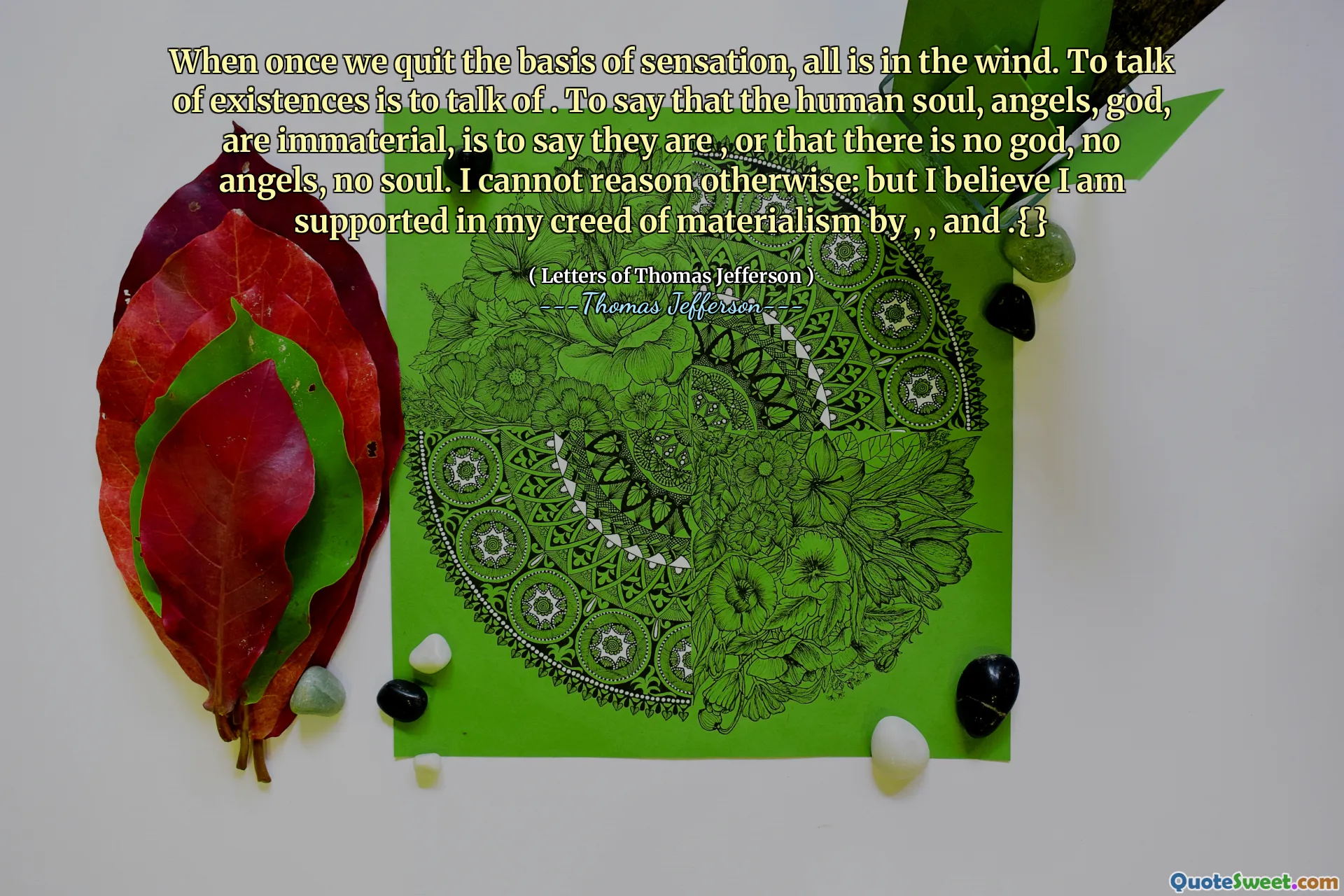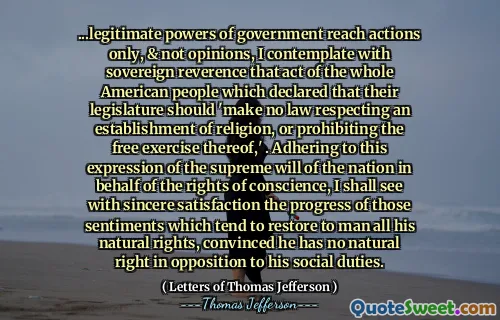
When once we quit the basis of sensation, all is in the wind. To talk of existences is to talk of . To say that the human soul, angels, god, are immaterial, is to say they are , or that there is no god, no angels, no soul. I cannot reason otherwise: but I believe I am supported in my creed of materialism by , , and .{}
Thomas Jefferson expresses a view on the foundation of existence, emphasizing the primacy of sensation. He argues that if we abandon sensory experience, we lose the basis for discussing any form of existence. He posits that discussing immaterial entities like the soul, angels, or God implies a denial of their existence altogether, reinforcing a materialistic worldview. This reasoning asserts that if something cannot be experienced through sensation, it cannot properly be said to exist.
Jefferson firmly supports his belief in materialism, suggesting that any claim of immateriality leads to confusion about existence. His reflections indicate a strong conviction that understanding and knowledge should be rooted in tangible experiences. Such a perspective challenges traditional views on spirituality and the existence of non-physical entities, advocating for a philosophy grounded in the observable world.










